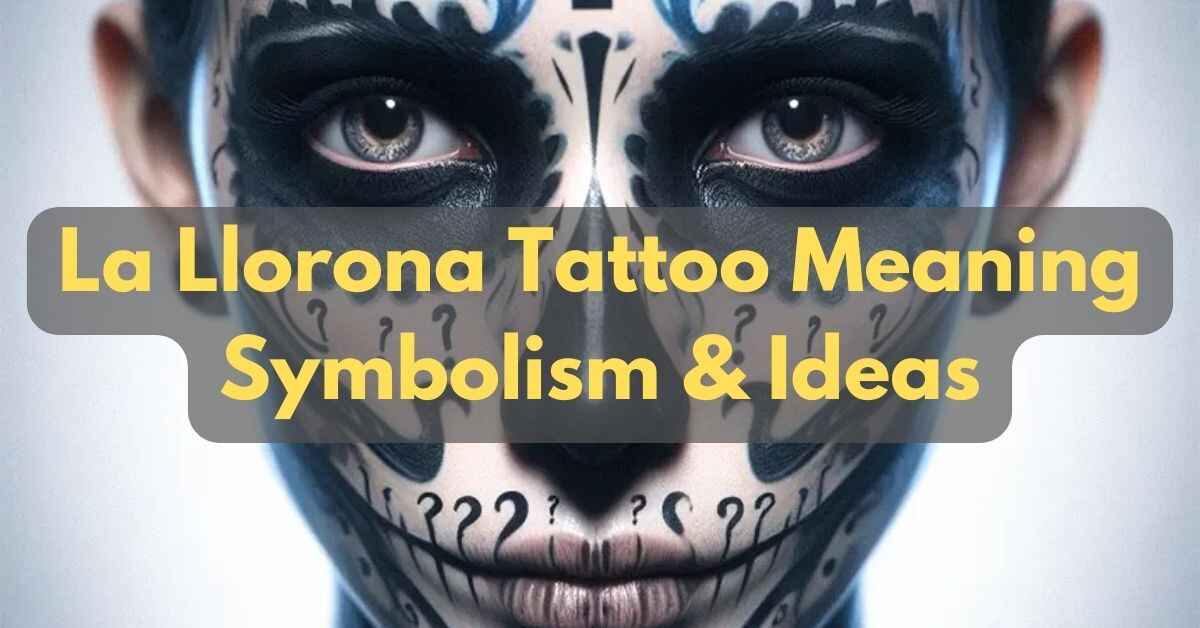Tattoos are more than just ink on skin; they tell stories, convey emotions, and sometimes, they carry profound cultural significance. One such tattoo that has been captivating enthusiasts is the La Llorona tattoo. Let’s dive into the intriguing world of the La Llorona tattoo meaning and uncover the enigma it holds.
Introduction
The haunting legend of La Llorona, Spanish for “the weeping woman”, has captivated Mexican culture for generations. Her story has taken on mythic proportions and she has become one of the most ubiquitous symbols in Mexican folklore. Given her cultural significance, it is no surprise that La Llorona has become a popular tattoo choice, especially among those of Mexican heritage. But what is behind the meaning and symbolism of the La Llorona tattoo? This article will take an in-depth look at the history, meanings, and cultural importance of this iconic tattoo.
The Legend of La Llorona
While there are many variations, the most common version of the legend goes like this: La Llorona was born Maria, a beautiful peasant woman who fell in love with a wealthy ranchero. They had two children together out of wedlock. The ranchero refused to marry La Llorona and eventually left her for a woman of his own class. Consumed by rage and grief, La Llorona drowned her children in a river as revenge against the ranchero. Upon realizing what she had done, she took her own life. From that day forward, her restless spirit was doomed to wander waterways for eternity, crying and searching for her children.
La Llorona Tattoo Meaning and Symbolism
La Llorona tattoos carry a multitude of symbolic meanings:
Grief and Sorrow
The most obvious symbolic meaning is grief over dead loved ones and the eternal sorrow of La Llorona crying for her lost children. It represents mourning and regret that can never fully heal. It is a memorial for those lost too soon.
Warning Against Uncontrolled Emotion
La Llorona also serves as a cautionary tale against the danger of passions like rage, jealousy, and desire. She allowed those extreme emotions to consume her and drive her to commit a horrifying crime. The tattoo is a reminder to keep destructive passions in check to avoid harming others or oneself.
The Search for Lost Children
For some, especially parents of missing children, the La Llorona tattoo represents the ceaseless and desperate search for lost kids. Just as La Llorona is eternally doomed to wander searching for her children in vain, parents of missing children feel compelled to endlessly search for their lost sons and daughters.
Cultural Pride and Heritage
Since La Llorona is such an iconic part of Mexican folklore, her image in tattoo form represents pride in one’s cultural roots. It is a symbol of honoring Mexican and Mexican-American heritage.
Defiance and Female Empowerment
La Llorona is also viewed as a feminist figure – a woman driven to the edge by mistreatment from men. The tattoo can symbolize female empowerment and strength in the face of gender-based oppression.
Remembrance of the Dead
In Mexican culture, La Llorona is strongly associated with honoring dead relatives or friends, especially during Dia de los Muertos. The tattoo is a way to remember those who have passed on.
Atonement and Penance
The legend is also a morality tale of sin and penance. La Llorona’s restless spirit is compelled to eternally weep for redemption. The tattoo represents the concept of repenting for past sins and finding atonement.
Protection and Good Fortune
There are many traditional tattoo in the world. In some Latin American folk magic traditions, La Llorona is seen as a supernatural protector of women and children. Her image wards off evil and brings good fortune. As a tattoo, La Llorona can represent asking for her blessing and protection from harm.
La Llorona Tattoo Ideas
There are some common iconographic elements found in most La Llorona tattoos:
1. A woman with long black hair covering her face
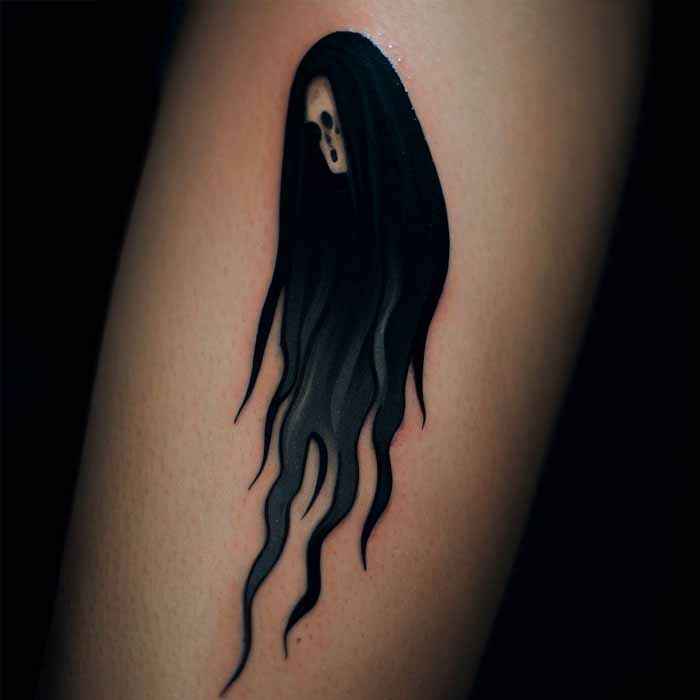
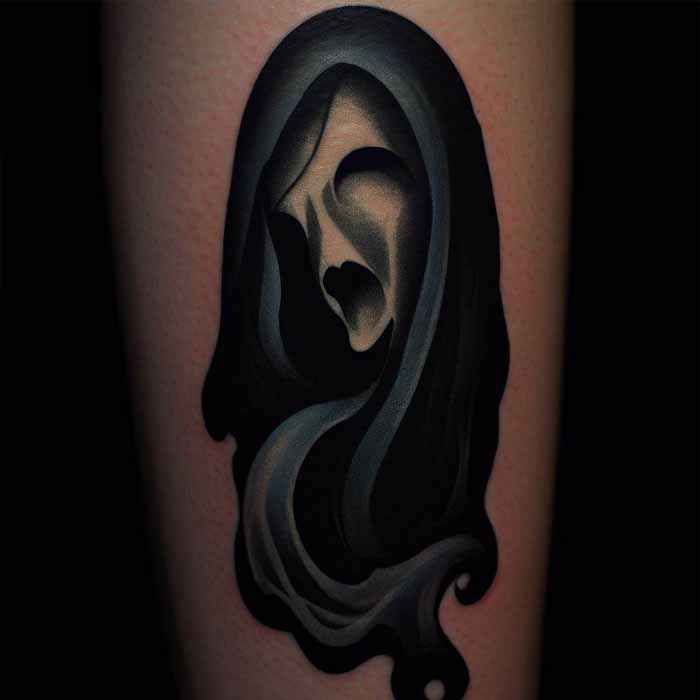
2. Tears streaming down her cheeks
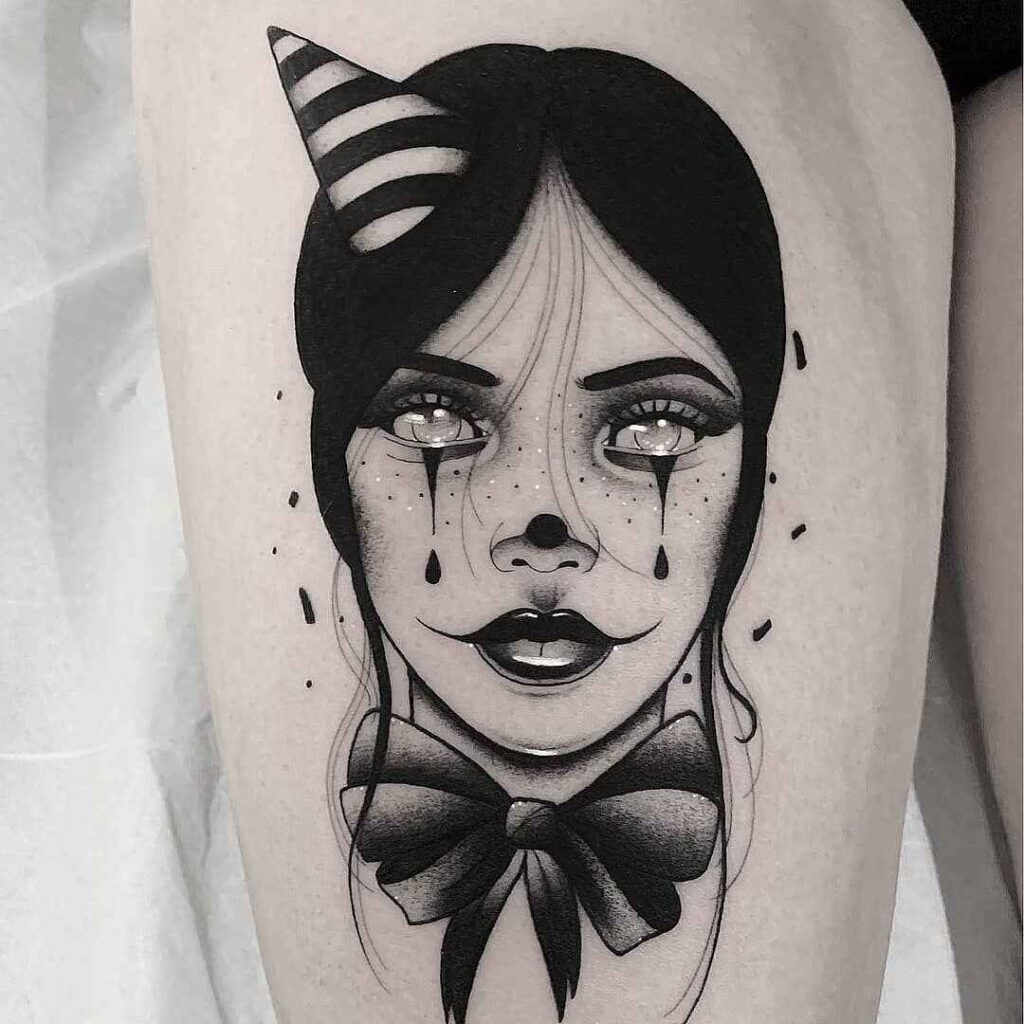
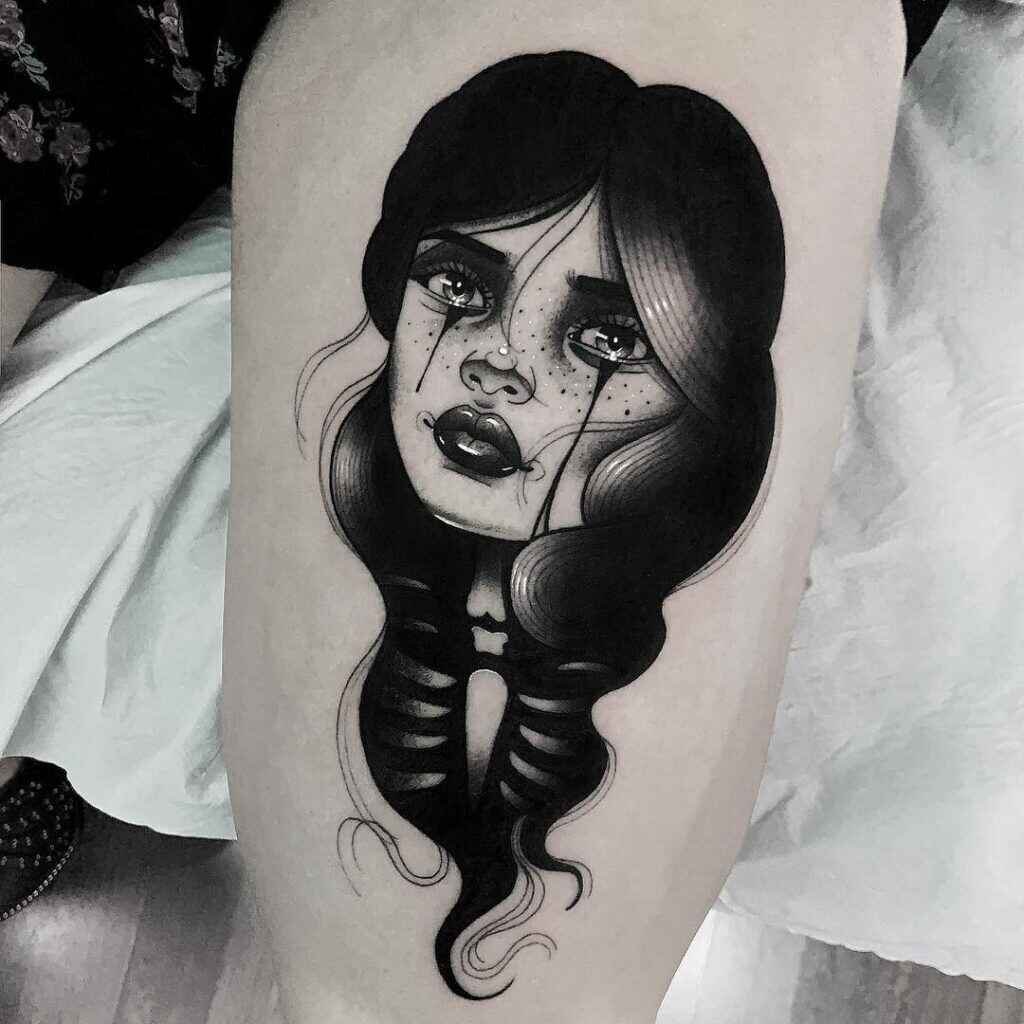
3. A river or waterway where she dwells
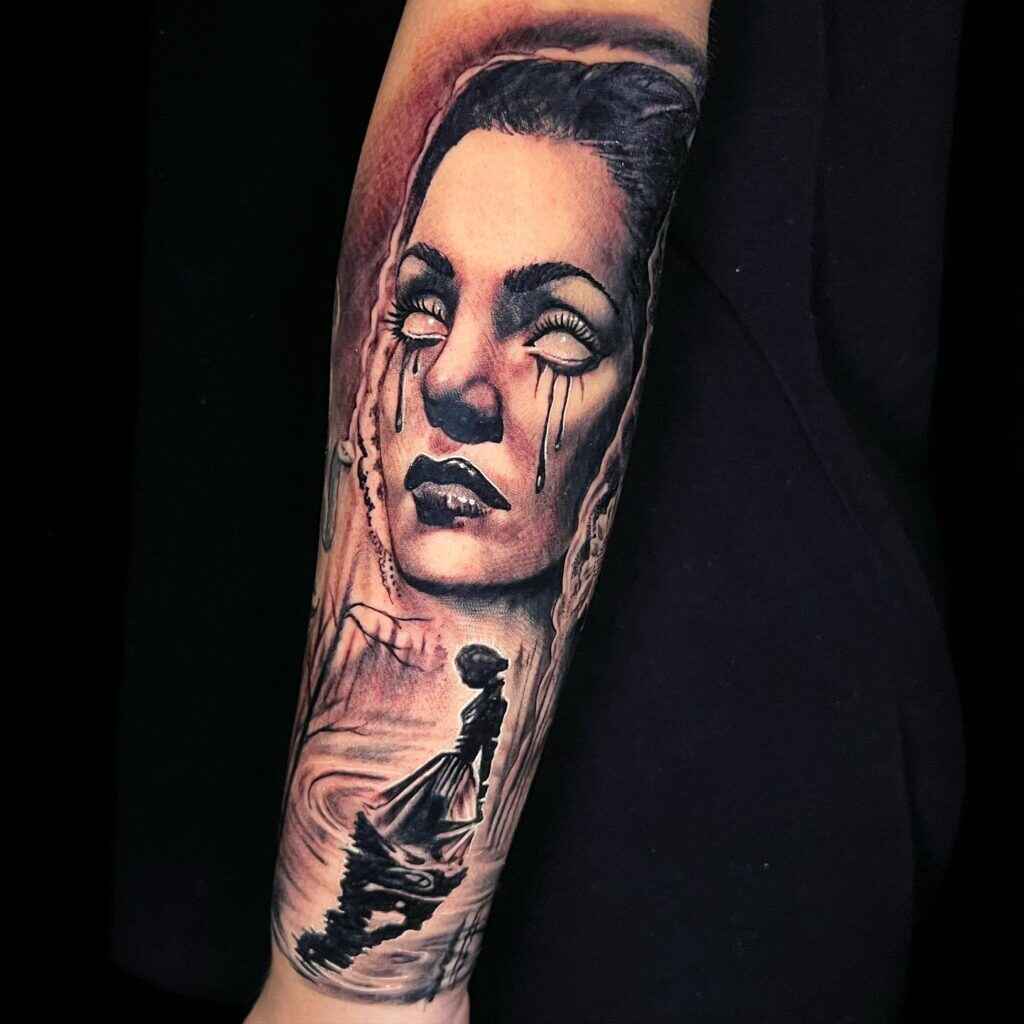
4. Willow trees and weeping willow branches
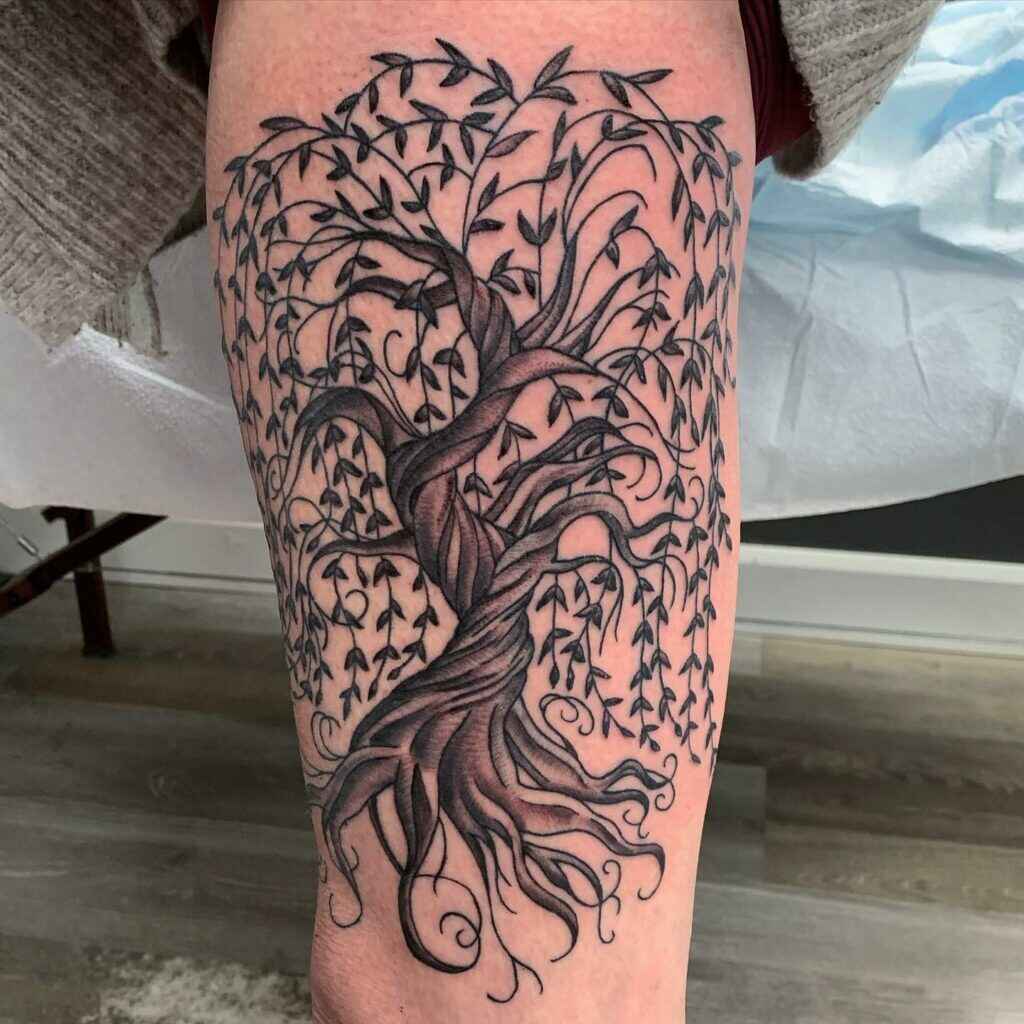

5. Children playing along the water
6. The woman’s hands reaching out for the children
7. Skulls, skeletons, or Day of the Dead motifs
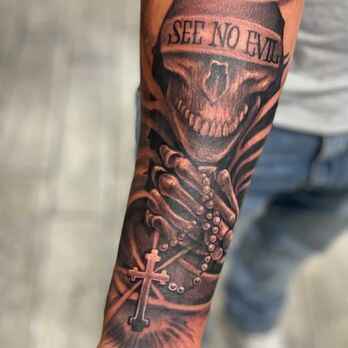
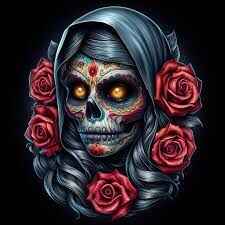
8. White gown or shroud
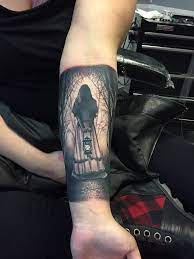
9. Floating candles
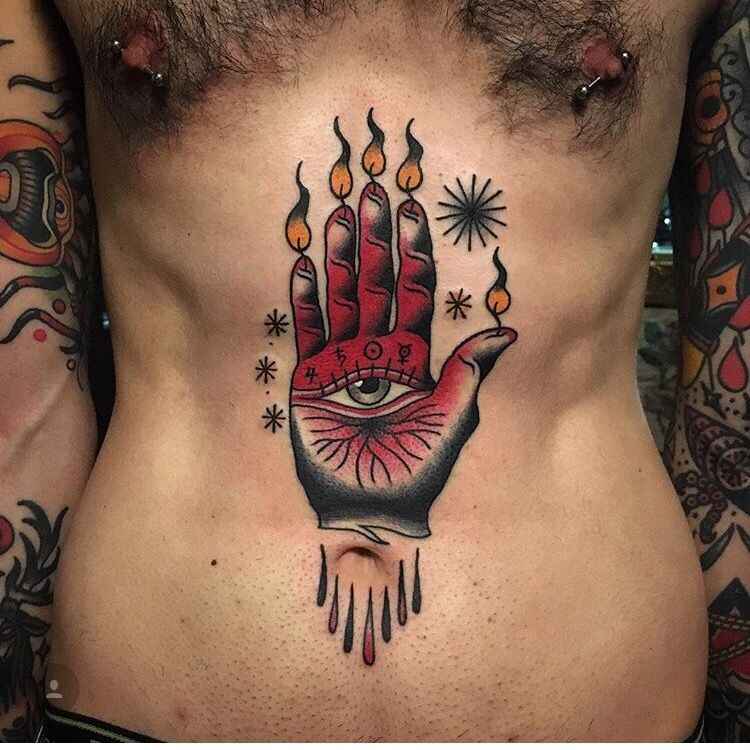
10. The moon and darkness
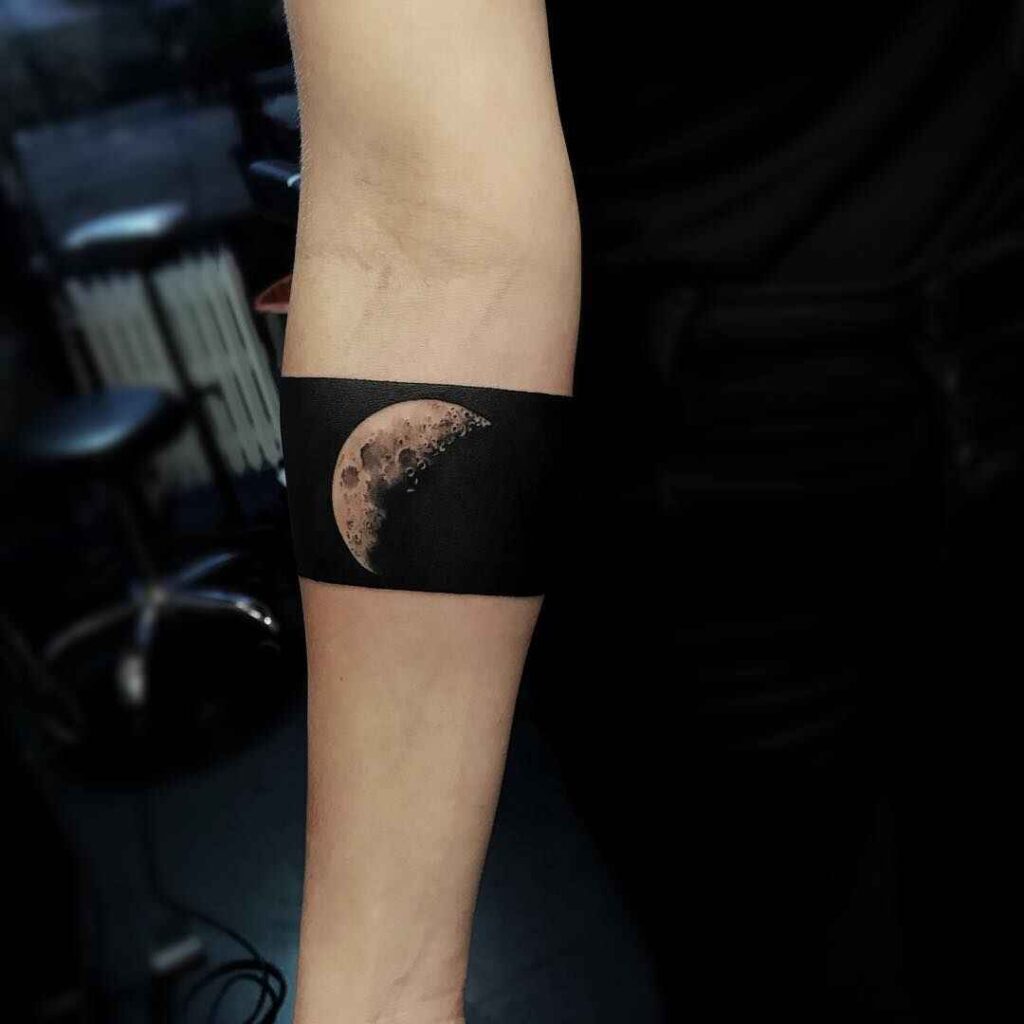
These classic visual elements immediately evoke the legend. More elaborate designs incorporate other symbols like crosses, broken hearts, flowers, Calaveras, and Mexican cultural motifs. Traditional American and Chicano tattoo styles are most common for La Llorona pieces.
Here also some ideas of La Llorona Tattoo-
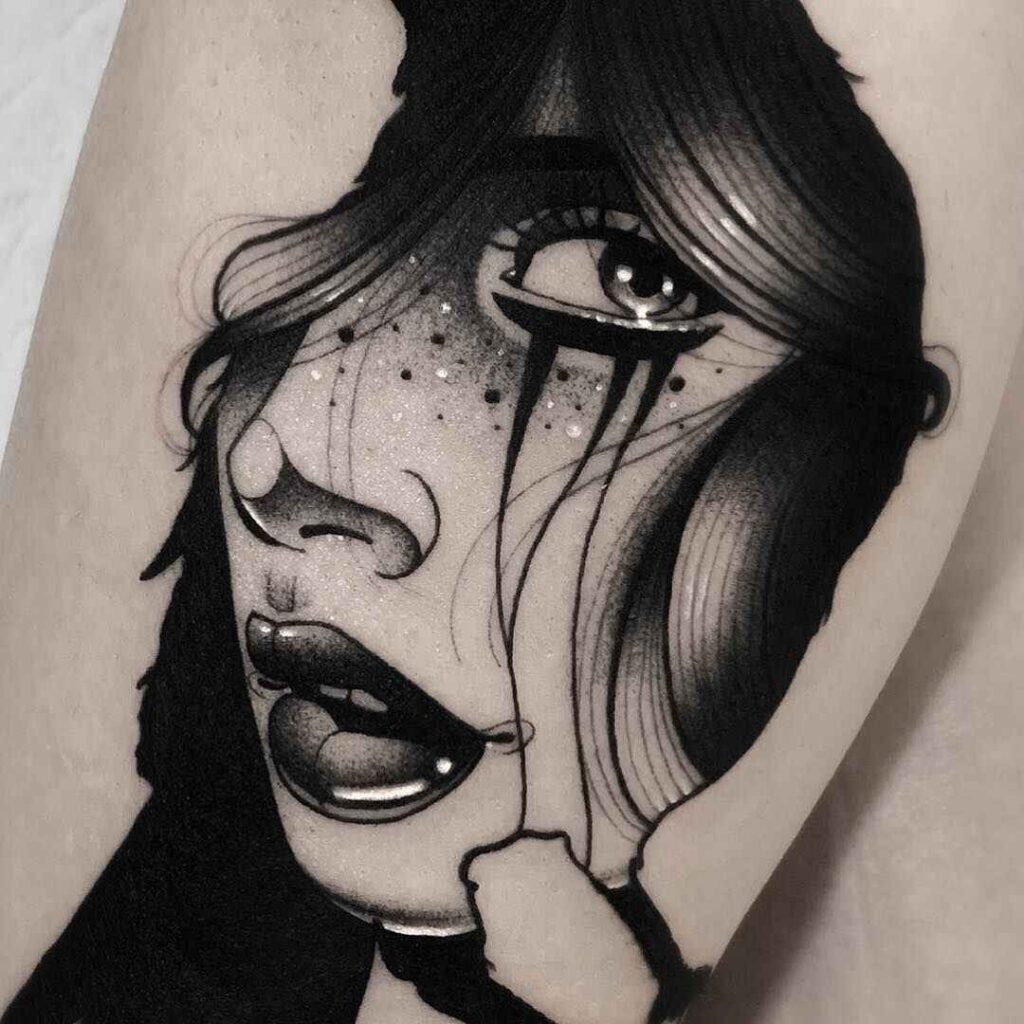

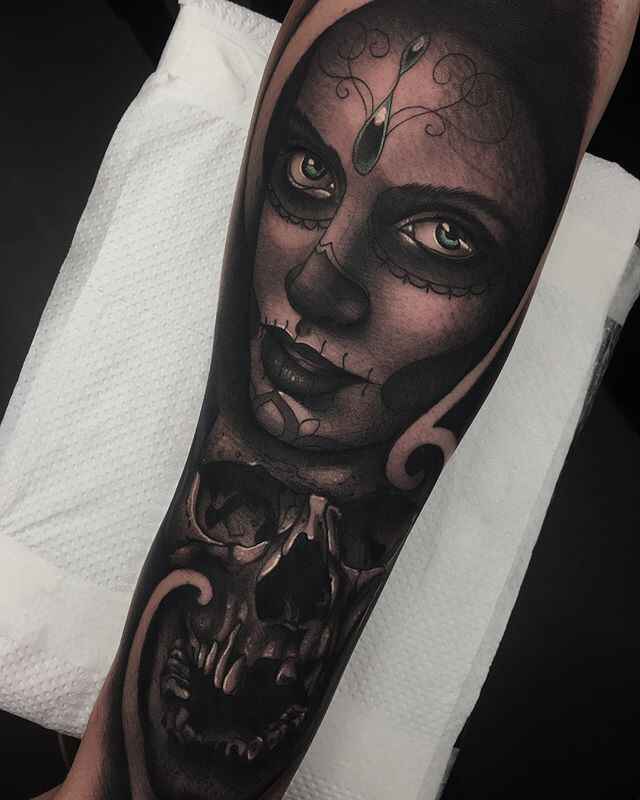
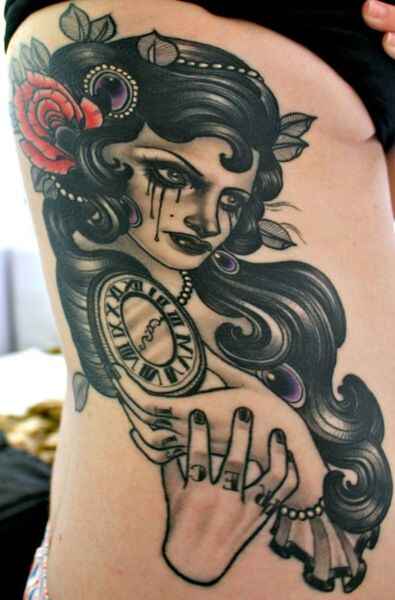
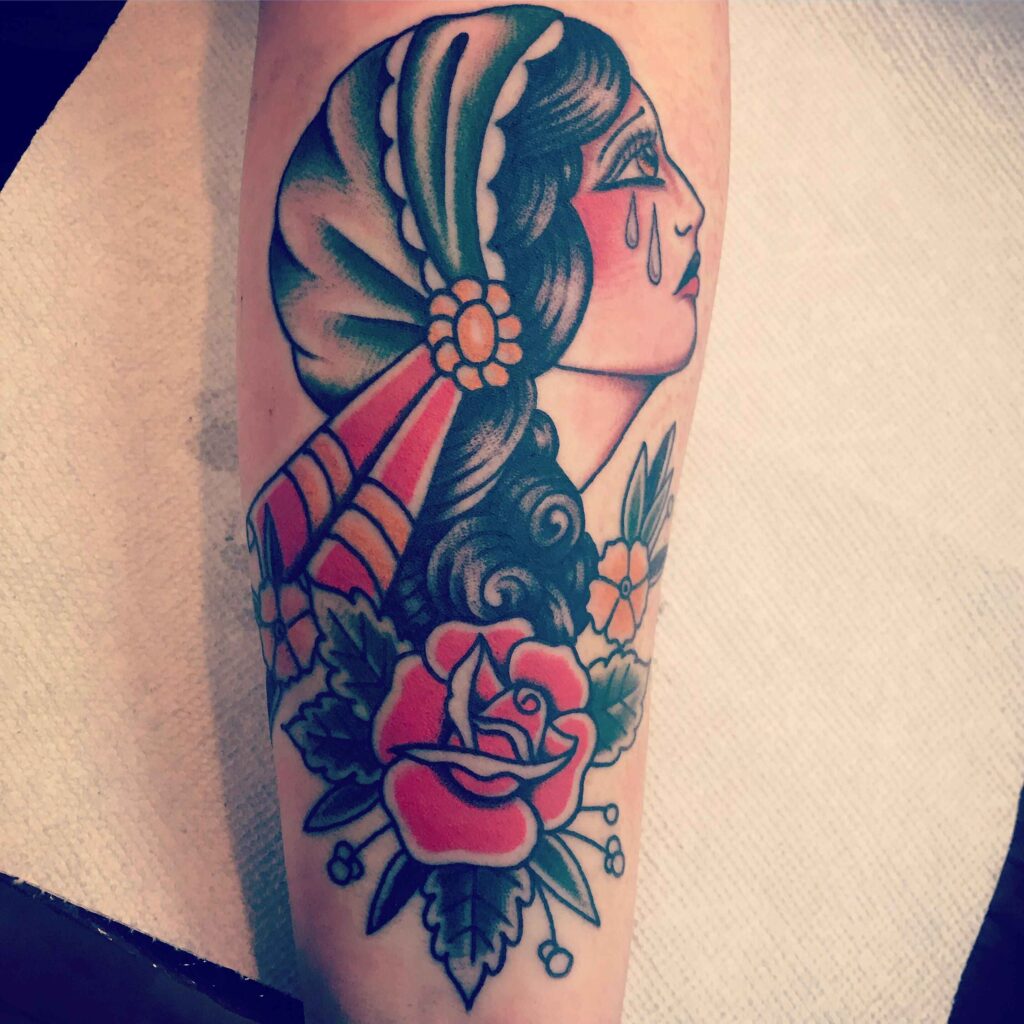
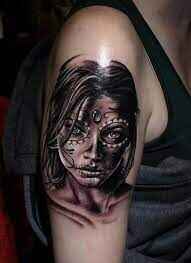
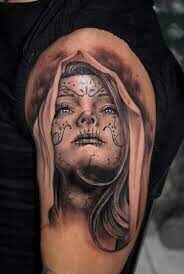
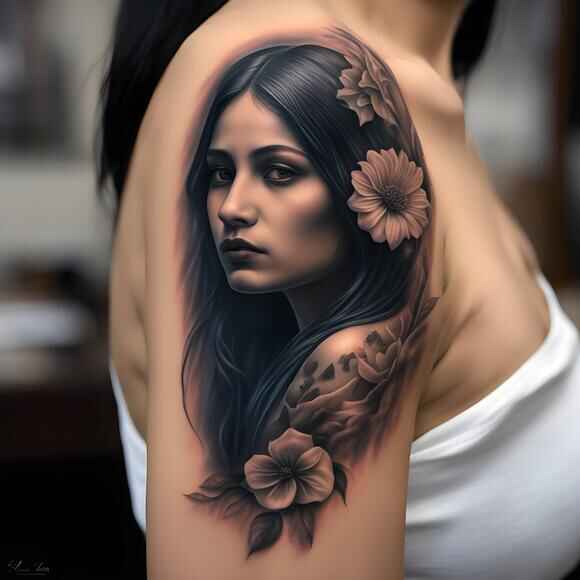

Cultural Significance & Meaning in Mexican Culture
More than just a scary ghost story, La Llorona is deeply culturally significant in Mexico:
- She has become an archetypal Mother figure – an unstable protector who can both give life and take it away.
- She embodies complex attitudes about female gender roles as both mother and monster.
- Her story explores societal issues like class division, gender inequality, and social stratification.
- She reflects the pain and disempowerment of the poor and marginalized.
- She is a morality tale about the dangers of obsessive love, anger, and jealousy.
- She has become a unifying cultural touchstone known by all Mexicans.
- Her restless spirit represents the long dark history and suffering of the Mexican people.
For Mexican women especially, La Llorona is a complex symbol of the dual role of motherhood – capable of immense love and sacrifice, but also inflicting unimaginable pain. She is both warning and inspiration.
La Llorona in Chicano Culture
As a prominent figure in Mexican folklore, La Llorona holds deep meaning in Chicano culture as well:
- She remains a symbol of cultural pride and celebrating Mexican-American roots.
- Her story connects Chicanos to their ancestral homeland.
- She represents the tension between American and Mexican cultural identity.
- La Llorona is a reminder of marginalization and struggles faced by Latina women.
- She symbolizes the pain of mother-child separation through immigration.
- For Chicanos, she embodies cultural grief over loss of language, land, and customs.
So for Chicano individuals, La Llorona tattoos affirm pride in their cultural heritage, commemorate ancestors, and memorialize shared suffering and loss.
FAQs about La Llorona Tattoo Meaning Symbolism & Ideas
What is the significance of the weeping woman in la llorona tattoos?
Why is La Llorona crying?
What does La Llorona look like?
Is La Llorona evil or good?
Who gets La Llorona tattoos?
Does La Llorona have any powers?
Conclusion
Far more than just a spooky legend, La Llorona has become an indelible part of Mexican cultural history and identity. For those of Mexican descent, a La Llorona tattoo ties them to generations past while honoring shared suffering and loss. The weeping woman’s complex symbolic meanings speak to the dualities of motherhood, unchecked emotions, redemption through grief, and the mystical powers of the spirit world. Simple or elaborate, La Llorona tattoos eternally memorialize this haunting Latino spirit and affirm one’s cultural roots.
